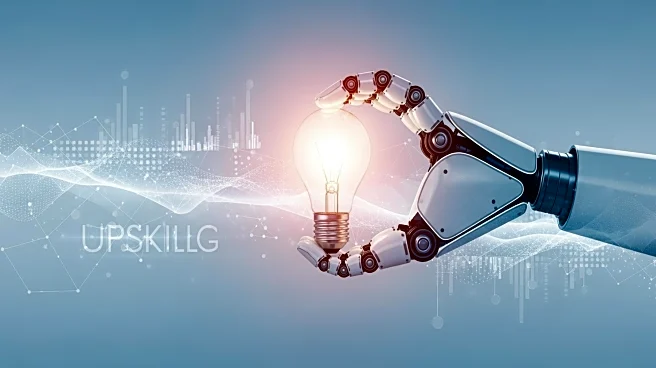What's Happening?
The rise of artificial intelligence (AI) has led to significant layoffs across various industries, with companies like Amazon and Salesforce reducing their workforce in favor of AI-driven efficiencies.
In October, the U.S. experienced the highest level of layoffs since 2003, with 153,074 job cuts. As AI becomes more integrated into business operations, workers are encouraged to upskill and adapt to remain competitive. Experts suggest that understanding AI and developing adjacent skills can help displaced workers transition into new roles. AI literacy is increasingly seen as a baseline requirement for future employment, similar to computer literacy in the past.
Why It's Important?
The shift towards AI-driven operations is reshaping the job market, making it crucial for workers to adapt by acquiring new skills. This trend highlights the importance of continuous learning and flexibility in career development. As AI becomes a standard tool in many industries, those who can effectively integrate and utilize AI technologies will have a competitive edge. This transition not only affects individual career paths but also has broader implications for economic stability and workforce dynamics. Companies and educational institutions may need to collaborate to provide training and resources to support this workforce transformation.
What's Next?
As AI continues to influence job markets, workers are likely to seek opportunities to enhance their skill sets, focusing on AI literacy and related competencies. Companies may also need to reassess their workforce strategies, balancing AI integration with human expertise. Policymakers and educational institutions might play a role in facilitating this transition by offering training programs and resources to help workers adapt. The ongoing evolution of AI technology will require continuous adaptation and learning, emphasizing the need for a proactive approach to career development.









